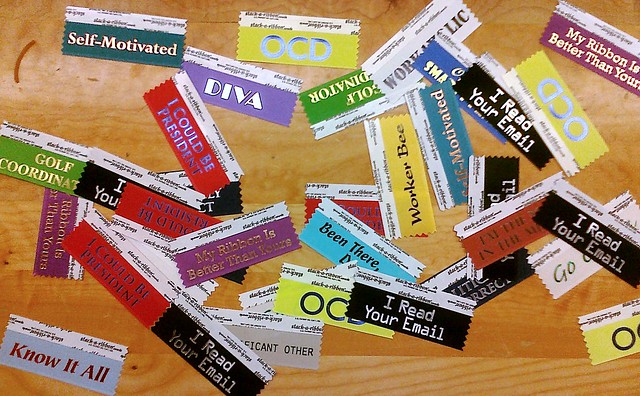Back in 2006 when I got my first position in a library, in a job-emergency and with no intention of staying in the profession, one of the many many things I didn't expect librarianship to involve was exciting foreign travel. But so far it's taken me to Philly, to Latvia, to South Africa, and next year to Vancouver.
In part 3 of my posts about Cape Town (part 1, including a presentation on professional brand, can be read here; part 2 about the trip itself can be read here) I wanted to discuss something that the LIASA 2013 conference made me think about: English conferences have something missing. They don't seem to make people feel inspired and uplifted like other conferences do. Why is that?
NB: I originally, erronously, entitled this post 'Why don't UK conferences make you feel like this?' - but one thing which came out of the Twitter discussion I had about this subject while in SA is that there are plenty of people who've been inspired by conferences in Ireland, Wales and Scotland; this is borne out by the Storify embedded below. Apologies, rest of the UK...
English reserve
LIASA in Cape Town was on a pretty large scale - several hundred librarians from several countries. Here's how it made me feel: excited, uplifted and optimistic. This is exactly what I want from a conference: you come together with your peers, you share ideas, you go away not just with practical ideas to apply to your job, but feeling inspired about librarianship. This is how I felt after SLA2011 in the USA, too. Interestingly, this is how I felt after the New Professionals Conferences I've been to, and this is how, judging from the Twitter reaction to them, people feel after attending LibCamps. But this is not how I've felt after, for example, Umbrella, or LILAC, or various JISC-related things I attended as part of a previous job, or smaller events I've been to organised by ARLG or CDG. That's not to say these events weren't good events, or weren't useful to me - they were mostly both of those things (LILAC particularly). They just didn't send me home beaming on the train / plane with optimism and uplift.
It's hard to avoid the conclusion that English reserve and cynicism is what stops some events reaching the heights I'm describing. The events I've been inspired by have either been on foreign shores where English reserve and cynicism aren't applicable, or for New Professionals conferences where the delegates haven't been around long enough to become cynical or reserved. People seem to get very inspired by unconferences such as Mashlib and Libcamp, and Radical Libcamp - and by definition unconferences should be populated by a self-selecting group of engaged and non-cynical (about the profession, at least) delegates. So basically in situations where the English reserve and cynicism can't get a proper foothold, the conference can flourish and leave everyone feeling reinvigorated - is it that simple?
Now, I'm aware not everyone agrees with me on this. Colleagues of mine, my boss for example, have been to English conferences and come away inspired, so maybe I'm either a: going to the wrong conferences, or b: approaching them in the wrong way? If you have time to leave a comment, I'd be interested in your thoughts.
What's the most inspiring library event you've ever been to? Storify time
Finally, I conducted a brief and unscientific poll on Twitter this morning, so you can get some other perspectives on peoples' most inspiring library events. Thank you to all who took part and RT'd my request for input. I was going to total up the 'traditional UK conferences versus other types' votes, but the waters are murky there as there's plenty of responses from people not in the UK in the first place. So I've attempted to categorise the answers but I'll let you draw your own conclusions. If nothing else, make a note of these as events to try and attend in the future (be sure to press the 'read next page' button at the bottom - there's loads of good stuff here)...
This will automatically update here as I add things to the Storify. (Storify is great, by the way.)


